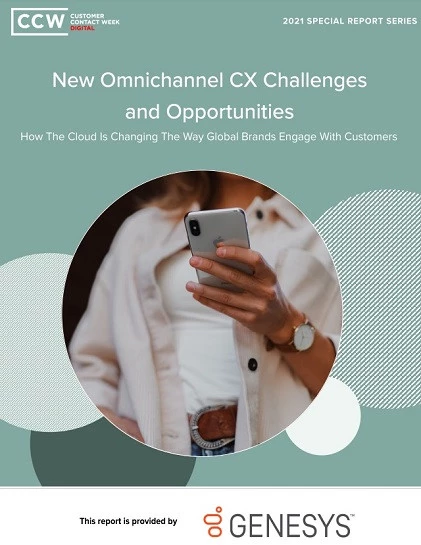Professor vs. Chinese Restaurant: Customer Engagement in the Social Era
Add bookmarkWhen it comes to social media, fear is a powerful driver. At its least resonant, it prompts businesses to develop a strategy-defining suspicion of interacting with customers in such a public forum. At its most, it leads them to invest significant amounts of funds and resources into social media monitoring and digital engagement technologies.
The source of that fear? The realization that customers can instantly communicate their frustration, disappointment or disgust with a brand to a mass audience of customers and competitors.
Worth noting, however, is the fact that the solution to that problem is the same as it was prior to social media’s emergence: do everything right and thus strip customers of any negative conversational artillery. Social media increases the likelihood that businesses will be held substantively accountable for their failures, but it cannot amplify malfeasance that does not exist. Sure, isolated falsehoods and exaggerations are always possible, but the real reason businesses fear social media is their awareness that the truth hurts – especially when that truth is conveyed publicly.
And if businesses are going to fear social media on the ground that it can amplify negativity, they must also be willing to recognize it as an opportunity to spread positivity. Just as wrongdoings can reach an audience not possible via traditional word-of-mouth, success stories now function as viral—and valuable—marketing collateral.
The key to seizing that opportunity is to consistently do the right, customer-centric thing. Some customers might be inherently predisposed to taking frivolous complaints viral, but the marketplace absolutely maintains an ability to flesh out the truth. And if the global window into a business’ customer experience is a positive one, a positive marketplace reputation will emerge. Social will have proven a valuable driver of results.
Last week, Edelman used the restaurant’s website as a guide when placing an order for four entrees. Shortly after receiving his food, the consultant and professor discovered that the price he paid for each entrêe exceeded the listed website price by $1. In an email drawing attention to the error, he asked the restaurant for clarification.
The restaurant did just that. Owner Ran Duan apologized for the "confusing" (sic) and explained that the prices listed on the website were out of date. He promised to correct them and also offered to send Edelman an email with the most recent prices.
Clearly proportionate and responsive, the e-mail nonetheless sent Edelman over the edge. In his follow-up email, he vaguely cited "Massachusetts Law" in implying that Sichuan’s pricing discrepancy was tantamount to actionable false advertising.
With fear firmly established, he then (inaccurately, according to several legal experts who offered commentary on the matter) invoked a Massachusetts legal statute in claiming he was entitled to treble damages. He thus asked for a refund of $12, which exceeds the actual error by a multiple of three.
Instead of engaging Edelman in a debate about the law, Duan explained that it was a mom-and-pop business (presumably to provide some context for the website issue) and agreed to "honor the website price and honor the $3.00." The restaurateur was mistaken in saying honoring a refund meant honoring a $3 charge (it would have been $4.00 for the meal and $12.00 if he chose to comply with the treble damages request), but he clearly intended to do the right thing. He clearly intended to accept accountability for the error, fix that error and personally remedy the customer who was complaining about the consequence.
For all his willingness to engage in a debate, Edelman did not freak out about the error itself—his next e-mail included a reminder that he was owed $4.00 rather than $3.00.
Still, he asked for a specific form of resolution, and the business chose to give it to him. That should have been the end of it, right?
Not for Ben Edelman. After first deciding that all he wanted was a refund, Edelman then decided that Sichuan Garden needed to be held accountable, on a macroscopic level, for the oversight he was calling "intentional." Attempting to ignite a conflict and debate with a business that had been nothing but understanding and apologetic, Edelman spent time using Duan’s words against him before advising Sichuan that he had reported the business to the authorities and effectively demanding that the business compensate any customer who had ordered takeout (and thus potentially used the website as a guide) since prices changed.
Despite awareness that the man had maintained a friendly demeanor, offered him the restitution he wanted and demonstrated limitations in his English prowess, the individual waged a needlessly vitriolic, exaggerated, contextually inaccurate and intellectually masturbatory war against a business that was not even interested in fighting.
At this point, any rational human would have told Edelman to take a long walk off a short pier. The customer-centric Duan, however, maintained his demeanor. He again apologized. He offered to pay the $12 restitution. He even promised to comply with the authorities regarding the allegation of false advertising. He then vowed to make sure it did not happen again (and then alerted Edelman to the fact that the errant menu had been removed from the website). As far as righting its wrong and attempting to maintain a favorable relationship with the customer, there is little more he could have done. And there is a lot about what he did that virtually no other business would have done.
Since Edelman expressed such interest in the legality of the situation, Duan also noted that he contacted a lawyer, who advised him not to provide any compensation due to a disclaimer on the website that said the prices were subject to change (he nonetheless reiterated his offer of a refund as the discussion continued).
Despite Duan’s continued, point-by-point effort to address Edelman’s concerns, Edelman refused to relent. And as he continued the conversation, he did so with an increasing sense of hostility, an increasing sense of insincerity and an increasing sense of unclear motivations. The restaurant was offering—and doing—exactly what he wanted, but Edelman was oddly intent on obscuring what he wanted and then accusing the restaurant of not complying or holding itself accountable. Like legendary wrestler Roddy Piper, Edelman was effectively saying, "Just when you think you have all the answers, I change the questions."
The back-and-forth proceeded, and it created an even greater distance between the state of the argument and a desirable resolution. To Edelman’s credit, Duan did start to respond with points that would be considered weak and contradictory in debate circles. He also attempted to disingenuously introduce excuses.
To Duan’s credit, he was backed into a lose-lose corner (at least as far as the interaction itself goes). He was bullied into a debate he did not want to have, but he knew that disengaging from the conversation would itself represent an act of customer centricity. He thus had no choice but to attempt to argue rationally with an academically superior but socially inferior customer even though said customer had made his disinterest in a realistic resolution abundantly clear.
But there is winning the argument – and winning in the interaction. While Edelman might have shouted more loudly and eloquently, Duan communicated in a manner more appealing to the general public. Edelman, in his mind, won the argument, but it is clear the Duan and his Sichuan Garden were victors in the reputational war.
Some commenters absolutely believed Duan was deliberately using the errant website prices to bilk customers out of money and thus applauded Edelman for his effort in consumer protection. The majority, however, saw Duan as a small business owner who made a mistake and did everything he could to fix that mistake and make the affected customer happy. They saw a business that, in the face of needless intellectual bullying and demanding from a professor who had no clear end goal in sight, worked hard to remain its sense of customer-centricity and resolve. They saw an individual who handled frivolous complaining with surprising restraint and level-headedness.
Instead of walking away as the greedy business that was systematically overcharging customers, Sichuan came across as the sympathetic victim of borderline harassment from a man who not only felt entitled but felt so elite that he did not need to stop demanding more even when he received that to which he was entitled. It came across as the kind of business that will work to do what is right for the customer even when the customer’s style of pursuing that outcome is anything but right.
The viral exposure functioned as good, not bad, press for the small business. Whether due to the bullying it faced from a presumed jerk or due to the level of customer-centricity it demonstrated, Sichuan attracted an outpouring of support. It thus landed on the opportunistic rather than fearful side of social customer engagement; the interaction itself might have been contentious, but the takeaway that resonated with customers around the world was favorable to the business.
Edelman and his brand, meanwhile, were subject to some undesirable assessments.
- Edelman is rude and willing to engage in unproductive arguments just for the sake of arguing.
- Edelman might be well-versed in legal jargon, but he possesses poor human-to-human communication skills and would thus be a poor brand ambassador.
- In a move that makes a mockery of actual customer dissatisfaction, Edelman gives the "voice of the customer" a bad name by using it to cry foul when little to none exists. In addition to the commotion over the $4 mistake, Edelman also, allegedly, confronted another restaurant (with a similarly off-putting tone) for suggesting that a Prix Fixe menu selection is a "special offer" and was thus not eligible for a Groupon promotion.
- Supposedly savvy in business and the owner of a PhD in economics, Edelman nonetheless does not understand opportunity cost. He committed hours of his precious time to an unnecessary argument that offered no promise of reward (the $4 to which he was theoretically entitled was offered at the very beginning of the call)
- Supposedly savvy in law, Edelman nonetheless demonstrated a limited, bastardized understanding of actual legal statutes.
- Edelman does not operate in the direction of a firm objective. Save for publicity once it went viral (which has not of the good kind), it is unclear what he anticipated to gain from the debate.
Instead of fearing social as all gore and no glory, businesses should learn from Sichuan. They should appreciate the fact that when a business handles interactions correctly from a microscopic perspective, they will reap reputational rewards on a macroscopic perspective.
Above all, social media serves to amplify the customer experience. If the customer experience is good, a wider audience will learn it is good. If it is not, a wider audience will be exposed to its shortcomings.
Fear, then, should not be rooted exclusively in the fact that the voice of a single customer will be heard around the world. It should be rooted in the fact that businesses are now accountable for their mistakes and wrongdoings.
When functioning as a driver, it should therefore serve most notably to encourage businesses to handle interactions as well as it possibly can.












